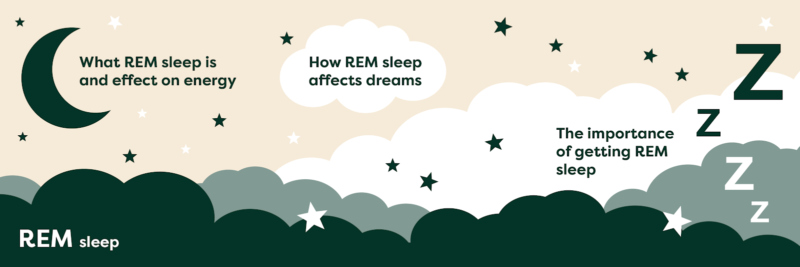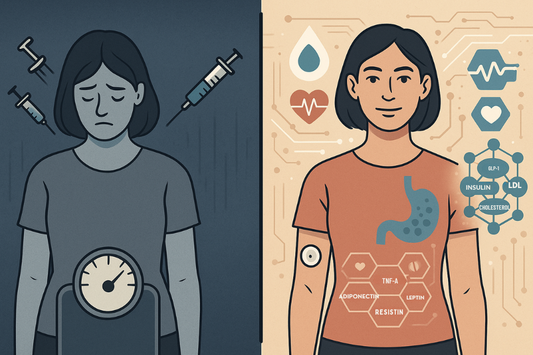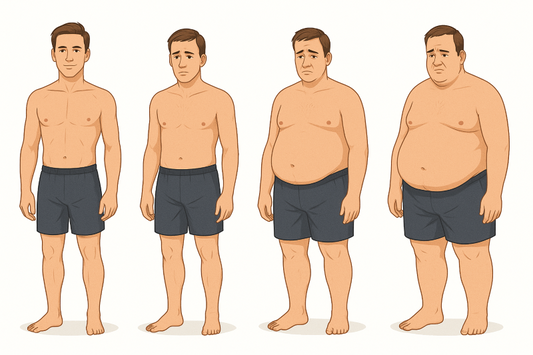Sleep is one of life’s most essential pursuits. Amongst other things, it’s key to our ability to be productive, helps us to perform to a high level and makes it easier to retain information and learn new skills.
Yet, for some of us, getting enough sleep can seem like an endless battle that shows no sign of letting up. Are we doomed to wander through life without a proper solution for this lack of shut-eye, or is there something more that can be done?
Read on to find out why you might be struggling to get settled once you hit the hay, and to discover our top tips on how to get your recommended 7-9 hours beneath the sheets.
Why Do I Struggle To Sleep?
The inability to sleep properly is seldom attributable to a single factor. In fact, in most cases, it can be put down to a combination of issues. These include genetics (and the existence of what has been referred to as “the clock gene”), how your brain reacts to stress and whether or not you’re sensitive to light.
“The clock gene” lets us know when it is time to get some sleep. As it varies in strength from person to person, this can mean that there are people who feel refreshed after only a few hours of sleep and, as a result, remain at the mercy of a body that believes that this is a sufficient amount of rest. Spending such limited time in bed has been linked to the early development of dementia, so this may end up becoming a serious problem if not properly addressed.
https://humanpeople.co/wp-content/uploads/2021/03/clock-300x199.jpegElsewhere, those who get caught up in running through the events of the day or worrying about what’s to come are also likely to experience poor sleep. This is something that is hard-wired into the people affected - a result of neurotransmitters (adrenaline and serotonin) keeping the brain in sharper focus during rest periods.
Light sensitivity is an important consideration because of how various forms of light can interfere with melatonin, the hormone responsible for telling us when we are tired and helping us to drift off. As a result, those who are sensitive to light often find it difficult to switch off or stay asleep when exposed to light - be it natural light or the blue light found in so many of our modern communication devices.
Taking Back Control Of Your Sleep
If the things listed above sound familiar, then fear not, we are here to help.
There are several things you can do to take back control of your sleep and synchronise your sleep schedule, from small changes to your pre-bed routine to major adjustments to your lifestyle. Here is our pick of the best:
- Relax: Easier said than done, right? Put some time aside in the evenings (30 mins is acceptable) to let yourself unwind. Relaxation can take on many forms, from practising yoga/mediation, soaking in the bath or reading a book. You may even benefit from sipping a warm drink and keeping your feet warm - the little things can make a big difference.
- Routine: Beat the clock. Well, “the clock gene”, to be exact, by being strict with yourself over when you are going to sleep. Go to bed at the same time every night and get up as soon as your alarm sounds in the morning. Hitting the snooze button will set you back, so make a commitment to yourself to keep things consistent.
Sleep and nutrients . Large studies have shown that a deficiency in vitamins A,C, D, E and K are associated with sleep problems(5). Men with poor sleep had a strong correlation with Vitamin D deficiency. Magnesium is also associated with poor sleep. Taking 1000mg mg of magnesium glycinate at night helps to relax the brain in preparation for sleep. L theanine is an amino acid found in green tea that will also improve sleep quality.
https://humanpeople.co/wp-content/uploads/2021/03/cat-300x200.jpegGet some happy feelings from exercise. Adding exercise to your regime is a sure way to improve sleep. It will boost your mood and increase lots of good endorphins, stimulate blood flow and increase your oxygen and energy levels.
It is also a great way to lower cortisol and boost BDNF aka growth hormone for the brain.
The time you exercise to boost sleep is affected by your genes. Some people have a gene variation in the COMT gene that means you break down adrenaline a lot slower. For these people, exercising in the evening means that they are buzzing and it is counterproductive. For others, it's not a problem. Being aware that this could be an issue allows you to plan for a good night's sleep.
- Mindful Naps : Short day time naps have been shown to improve learning and memory. They increase alertness and put us in a better mood. Here are some napping tips:
- To avoid feeling drowsy “sleep inertia” avoid going into the dream state/ REM sleep. If you do, you will probably feel more drowsy when you wake up.
- Keep your nap under 20 minutes; aim for 15 minutes and set an alarm.
- Keep it early and before 2:30pm to avoid affecting night time sleep.
When naps work:
Naps don’t work for everybody, especially those with difficulty sleeping at night. It usually requires sleeping somewhere that is not your own bed and interferes with the normal working day. If it does work for you, it can be a powerful regenerator that increases memory and focus.
When to explore your need to nap:
A sudden need to nap during the day is different and it can signal a change in health. In the elderly, it is associated with cognitive decline and has also been linked to diabetes.
Check out our article on magnesium to find out more about this essential mineral.
Contact Us
We hope you found this blog useful and that you managed to pick up some tips to improve your sleep. Get in touch with us to let us know if any of the information here proved to be conducive to a more restful sleeping experience.
Still struggling to get a good night’s sleep? Personalised supplements will help. Take our online consultation survey today to find out more.
Already taken the survey and ready to order your tests? Great, sign in and we’ll get you sorted.
-
- Lau, H., Tucker, M. A., & Fishbein, W. (2010). Daytime napping: Effects on human direct associative and relational memory. Neurobiology of learning and memory, 93(4), 554–560.https://doi.org/10.1016/j.nlm.2010.02.003
- Hilditch, C. J., Centofanti, S. A., Dorrian, J., & Banks, S. (2016). A 30-Minute, but Not a 10-Minute Nighttime Nap is Associated with Sleep Inertia. Sleep, 39(3), 675–685. https://doi.org/10.5665/sleep.5550
- Mantua, J., & Spencer, R. (2017). Exploring the nap paradox: are mid-day sleep bouts a friend or foe?. Sleep medicine, 37, 88–97.https://doi.org/10.1016/j.sleep.2017.01.019
- Napping do’s and don’t for healthy adults Mayo Clinic
- Micronutrient Inadequacy in Short Sleep: Analysis of the NHANES 2005-2016






